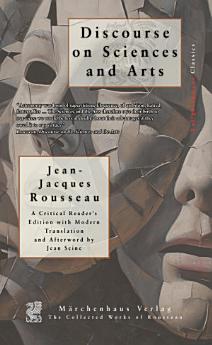Discourse on Sciences and Arts
About this ebook
This modern critical reader's translation from the original French manuscripts includes supplementary materials that bring Rousseau's world and impact to life. This professional translation delivers scholarly depth with amplifying materials. This Reader's Edition includes an illuminating afterword tracing Rousseau's intellectual relationship with Diderot, Voltaire and his reception by Nietzsche, revealing the fascinating dialogue between the period's most influential minds. A comprehensive timeline connects the major events of Rousseau's life with world events, an glossary of Enlightenment terminology frames Rousseau's debates in the intellectual milieu of his day, and a detailed index provides an authoritative guide to his complete writings.
In 1750, Rousseau composed this essay (titled in French "Discours sur les sciences et les arts") in response to a challenge posed by the Academy of Dijon, which had asked whether the revival of arts and sciences improved public morals. His eloquent answer—arguing that modern progress corrupts rather than purifies—won the academy’s prize and vaulted Rousseau to sudden fame across France, sparking lively debate. Appearing at the height of the Enlightenment, the work’s counterintuitive verdict shocked a society enamored with reason and refinement, marking a radical entrance for a new philosophical voice.
First published in 1750 after it won a prize from the Academy of Dijon, the Discourse on the Sciences and Arts announced Rousseau’s arrival as a bold new voice in French letters. In this concise yet sweeping essay, written in elegant 18th-century prose, he contends that the proud advancement of learning and refinement has ushered in decadence and hypocrisy instead of true virtue.
Often referred to simply as the “First Discourse,” this work introduced a theme that would run through all of Rousseau’s later writings: the idea that humanity’s natural innocence is spoiled by the artificial polish of society. The essay’s paradoxical critique of Enlightenment culture drew both admiration and indignation in salons across Europe; Voltaire famously mocked Rousseau for praising savagery even as he wrote in refined French. Yet the bold stance and lucid style of the Discourse on the Sciences and Arts won Rousseau instant recognition, and its core question—whether progress actually makes people better—echoed through the debates of the era, presaging the deeper explorations he would undertake in later works.










